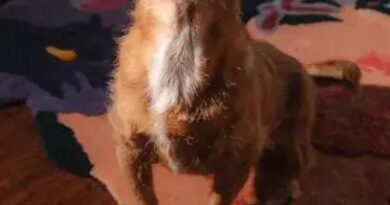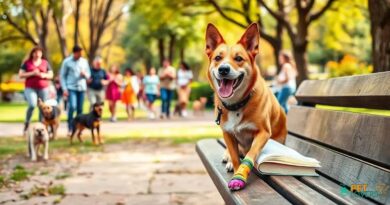What is Quarantining Tips
What is Quarantining Tips for Dogs?
Quarantining tips for dogs are essential guidelines designed to ensure the health and safety of your canine companion during times of illness or potential exposure to infectious diseases. This practice is particularly important when a dog has been in contact with sick animals or has recently traveled to areas where diseases are prevalent. Understanding the nuances of quarantining can help prevent the spread of illness and protect not only your pet but also other animals and humans in your vicinity.
Why is Quarantine Important for Dogs?
Quarantine is crucial for dogs as it helps to mitigate the risk of transmitting contagious diseases. Conditions such as kennel cough, parvovirus, and canine influenza can spread rapidly among dogs, especially in communal environments like parks or boarding facilities. By implementing effective quarantining tips, pet owners can significantly reduce the likelihood of outbreaks and ensure that their pets remain healthy and safe.
Signs That Your Dog May Need to be Quarantined
Recognizing the signs that your dog may need to be quarantined is vital. Symptoms such as coughing, vomiting, diarrhea, lethargy, or any unusual behavior can indicate illness. If your dog has been exposed to another sick animal or has recently returned from a high-risk area, it is wise to consider a quarantine period. Observing your pet closely and consulting with a veterinarian can provide clarity on whether quarantining is necessary.
How Long Should You Quarantine Your Dog?
The duration of a quarantine period can vary depending on the illness and the advice of your veterinarian. Generally, a quarantine period lasts between 14 to 21 days, but this can change based on the specific circumstances surrounding your dog’s health. It’s essential to follow your vet’s recommendations and monitor your dog for any changes in their condition during this time.
Creating a Quarantine Space for Your Dog
When quarantining your dog, it is important to create a comfortable and safe space for them. This area should be away from other pets and should include their bed, food and water bowls, and toys. Ensuring that the space is clean and well-ventilated can help your dog feel more at ease during their quarantine period. Additionally, providing mental stimulation through interactive toys can help alleviate boredom.
Maintaining Hygiene During Quarantine
Maintaining hygiene is a critical aspect of the quarantining process. Regularly cleaning your dog’s living area, food and water bowls, and any toys they use can help prevent the spread of germs. It is also advisable to wash your hands thoroughly after handling your dog or cleaning their space. Using disinfectants that are safe for pets can further enhance the cleanliness of the environment.
Feeding Your Dog During Quarantine
Feeding your dog a balanced diet during quarantine is essential for their recovery and overall health. Ensure that you provide high-quality dog food that meets their nutritional needs. If your dog is feeling unwell, consult your veterinarian about any dietary adjustments that may be necessary. Keeping a consistent feeding schedule can also help your dog maintain a sense of normalcy during this time.
Monitoring Your Dog’s Health
During the quarantine period, closely monitoring your dog’s health is vital. Keep track of any changes in their behavior, appetite, or energy levels. If you notice any worsening symptoms or new issues arising, contact your veterinarian immediately. Regular check-ins can help ensure that your dog remains on the path to recovery and can provide peace of mind for you as a pet owner.
Socialization After Quarantine
Once the quarantine period is over, it is important to reintroduce your dog to socialization gradually. Start with short walks in low-traffic areas and slowly increase their exposure to other dogs and people. This gradual approach can help your dog adjust back to their normal routine while ensuring they remain healthy and comfortable in social settings.
Consulting Your Veterinarian
Throughout the quarantining process, maintaining open communication with your veterinarian is crucial. They can provide tailored advice based on your dog’s specific situation and health needs. Regular check-ups and consultations can help ensure that your dog receives the best care possible during and after their quarantine period.





